It’s possible that I became a prosecutor because I love crime dramas. Or maybe I just love crime dramas because I was a prosecutor. One thing is clear: lawyers can’t stop talking about their work. We tell war stories at the drop of a hat. And prosecutors have some of the best material, because crime naturally has the elements that make a compelling narrative. The stakes are the highest imaginable: life, death, freedom, and justice.
Now that I write about crimes instead of prosecuting them, I’ve been wondering: why are TV crime dramas so addictive? Why are we fascinated with them? And why is it that, despite my compulsion, some of these shows drive me crazy?
Here’s what I concluded…
WHY WE LOVE TV CRIME DRAMA
We love TV crime dramas because they play on (and relieve) our FEAR.
I’ve heard a theory that the horror of 9/11 created a sense of vulnerability in our national consciousness, and that watching the good guys win makes us feel better. But I’m not sure about that. Shows like Law & Order, Perry Mason, Dragnet, and LA Law far preceded 9/11. So it’s something deeper than 9/11. I think there’s a primal fear we all have, rooted deep in our lizard brains.
We’ve all have had moments of feeling vulnerable, or looking over our shoulder while walking down the street. We hear about crimes happening every day (and the news only reports the most vicious attacks). We wonder: could that happen to me. How can I prevent it?
We need to see good triumph over the bad in the world. We want to know society will stop those darker impulses. The murderer will be caught, the criminals will be held responsible. We want to see justice.
People ask me where I get the stories for my books. I get them from 12 years of prosecuting crimes in our nation’s capital. I’ve seen some scary stuff. And I put it in my fiction.
On the other side of the coin,
Crime dramas channel our ANGER.
There’s a famous saying: Bad men do what good men dream.
Who hasn’t wanted to kill someone? Heck, I often want to hit my husband over the head with a frying pan just for the comments he makes when I’m blogging.
Just as we’ve all heard stories of violence and wondered, What if I was the victim? – we’ve all have had moments of thinking, What if I was the perpetrator? What if I let loose with that frying pan? How would that play out?
There’s a need to explore the dark side of our nature, to figure out what could make us so angry that we’d break from the restraints of civilized society, years of our mothers telling us to treat others the way we want to be treated. We wonder what the consequences would be. We both fantasize about this and fear this.
They express our LOVE.
Many of the best crime stories are also love stories. At the heart of many murder mysteries is the intersection of love and hate.
Murder is often about intense emotions, and nothing makes emotions more intense than interacting with the people closest to you. The first story in the Bible is about Adam and Eve, and in many ways it’s a love story. And yet it wasn’t long before we heard about the first murder: brothers Cain and Abel.
Often, the killer is someone very close to the victim: a spouse, lover, sibling, relative, or friend.
As a prosecutor of sex crimes and domestic violence in D.C. I saw this all the time. It inspired my first book, Law of Attraction.
There’s a point in most Law & Order episodes where a suspect says “I didn’t kill her! I loved her!” And although this is a well-trod path, crime dramas keep taking it. Because we’ve all felt that way. We would do anything to protect the ones we love. Or we want to kill them.
Here’s a great compilation of that “I loved her” moment:
About half the time, the person declaring their love for the victim ends up being the killer.
The best crime dramas have great CHARACTERS.
Of course, at the heart of any great detective story are wonderful characters. Heroes: someone who will right the wrongs, who won’t let us down. Men and women with a deep commitment to justice, to finding the truth. Villains: someone worthy of our hero’s attention, who could really screw up the world if he gets away with his evil plan. But these heroes and villains can’t be one-dimensional. What we really love are complicated characters. Flawed heroes. Appealing villains. Here are a few of my favorite.
Sherlock Holmes
We all love his amazing powers of deduction, his dedication, his intelligence. But he’s prone to extreme isolation and intense distrust of women, and he habitually uses cocaine and morphine.
Jack McCoy
from the original Law & Order
He has a brilliant legal mind, but is an unconventional, ruthless litigator, willing to bend and sometimes break the rules. But we understand at all points that his underlying motivation is a sincere desire to see justice done.
In recent years, we’ve seen the development of the Antihero at the center of a crime drama:
Dexter
He’s our golden-haired serial killer. Dexter is a blood spatter pattern analyst for the Miami Police Department. On the side, he kills serial killers, but first goes to great lengths to be sure they’re guilty. This is dark vigilante justice.
Walter White
Breaking Bad
After learning he has cancer, a high school chemistry teacher turns to using his expertise in chemistry to provide a legacy for his family – by producing the world’s highest quality crystal meth. As the seasons have gone on, Walter has gotten gotten much more “anti” and much less “hero.”
Stringer Bell
The Wire
Stringer is the second-in-command to a drug kingpin, and responsible for the daily operations. He orders incredibly violent, brutal acts – but attends college economics classes, has a copy of Adam Smith’s the Wealth of Nations, and in many ways runs the drug operation like a very professional business. Even as he orders crimes, you like him. Doesn’t hurt that he’s played by dreamy dreamy Idris Elba.
Omar Little
The Wire
Omar is an exceptionally ruthless and feared stick-up man, known for his facial scar and the shotgun he carries under his trenchcoat. But he lives by a strict moral code, and only robs drug dealers. He’s gay, disapproves of profanity, and accompanies his elderly grandmother to church once a month. In many ways, Omar is more honorable than the police characters who are trying to catch him.
So these are some great, multi-layered characters. But modern TV dramas need to provide even more than that.
Crime dramas need to TEACH us.
The best crime dramas teach us about how our criminal justice system works — and how it doesn’t. They show us what the legal process is really like, the rules we’re all operating under. And they give us a glimpse of modern technology and know-how.
The Wire
This is the most realistic TV crime drama. It covered crime in Baltimore, especially the drug trade, and the techniques the police used to fight it. The show was so realistic, it was reported that criminals watched it to get tips on avoiding police detection.
Criminal Minds
An elite group of psychological profilers analyze the nation’s most dangerous criminal minds in an effort to anticipate their next moves before they strike again.
Bones
Solving crimes using forensic science, especially cold cases, where the main evidence is the bones of the victim.
Law & Order: SVU
You know this is one of my favorites to both love and hate. I’ve spent the last two seasons nitpicking their episodes. SVU is great at doing ripped-from-the-headlines cases, and often shines a light on dark subjects. This season, SVU did a remarkable episode about male victims of sex crimes, paralleling the Jerry Sandusky/Joe Paterno case. The episode got people talking about this taboo subject, and may encourage other victims of similar crimes to come forward.
CSI
An elite team of police forensic evidence experts work their cases in Las Vegas, employing unbelievable science. I say unbelievable in the most literal sense. This is one of the most problematic shows, from my perspective as a prosecutor. More on that later.
TV crime dramas are FUN.
SVU had episodes last season featuring gypsy encampments, body modification, and vigilante justice doled out by regular Joes wearing superhero costumes. While these cases don’t show the real day-to-day work of a sex-crimes prosecutor, they’re a lot of fun to watch, and a lot more interesting than some of the real day-to-day work of prosecutors, like shepherdizing briefs and redacting Grand Jury transcripts.
So – I’m a big fan of TV crime dramas. At the same time…
I HATE THEM.
When they’re fake.
This is when I personally throw a slipper at the TV. When the hero can’t solve the crime without resorting to some magical crime-solving device no police officer has ever seen. If I want to see magic, I’ll watch Harry Potter.
There’s actually a phenomenon created by these shows called the CSI Effect. Jurors today want to see some kind of high-tech crime-fighting science, because they’ve seen it on TV: DNA off an eyelash left at the scene, or a magical fingerprint detecting camera. As a prosecutor, a large part of my job was bringing the jury’s expectations into line with reality, despite these TV shows.
The Worst Offenders:
1. You won’t get fingerprints off that gun.
Sorry, not gonna catch the killer that way. Usable prints are notoriously tough to get, and guns are the worst surface to get them from. A combination of conditions – dry skin, too much humidity, textured rubber or metal – conspire to wipe the gun clean, even if the shooter didn’t do it himself. When I used a fingerprint expert, it was usually to educate the jury on why there weren’t prints on the gun.
2. You don’t find intimate injuries in most sexual assault cases.
This is pet peeve of mine. Every assault victim on SVU has major injuries. So juries come to expect this of every rape case. But in real life, you’re mores likely to see no injuries at all. This is anatomy that can stretch to fit a baby, and even in violent assaults, where other injuries result, there are no intimate injuries. The prosecution usually has a call an expert witness to explain this and get over the jurors’ expectations.
3. Most rapists don’t lurk in bushes.
Rapes committed by strangers do happen, and get a lot of media coverage when they do — but usually a rapist is a man the victim knows intimately: an ex-boyfriend or stepfather; her doctor or minister; a teacher or coach; a professional colleague or the guy she invited home from a bar. I no longer worry about someone breaking in through my window, but I’m more cautious about who I’ll invite in.
4. Prosecutors don’t wear stilettoes.
Female prosecutors on TV sashay to court in four-inch Manolos. But real prosecutors are on their feet all day and often lugging big boxes of exhibits, so comfy shoes are key. The seasoned female prosecutor wears mid-range heels: you look nice for the jury but won’t break a toe when you stand to object. Sometimes the walk to the courthouse is done in flip-flops, with a quick switcheroo right before the judge takes the bench.
5. The victim isn’t a beautiful young heiress who secretly works as a stripper.
But you already knew that.
6. Police stations don’t have huge plasma screen TVs –
…on which they can instantly call up images and facts about suspects, and flashing red dots of a cell phones moving around the map.
7. The bad guy will never confess with his lawyer sitting right there.
You know the scene. In a dingy jailhouse meeting room, the prosecutor badgers the defendant until he sobbingly confesses: “Okay, I killed her! I had no choice!” Meanwhile, the defense attorney sits there looking mildly constipated. A real defense attorney is as likely to let his client be questioned by the prosecutors as a lobster is to throw himself into a pot of boiling water. Defense attorneys know the vast majority of their clients are guilty – and any time a defendant opens his mouth, he risks revealing that. As a writer, I understand why this scene is so popular – the prosecutor hero needs to find out what really happened, and only the killer can say for sure. But it’s pure fiction. (That said, I will always have a crush on Sam Waterston, the maestro of this scene on Law & Order.)
What do you think? Do you love TV crime dramas, or hate them, or both? What do you think are the best moments? The worst? And should I start wearing high heels now that I don’t have to lug exhibits to court? Leave your comments!
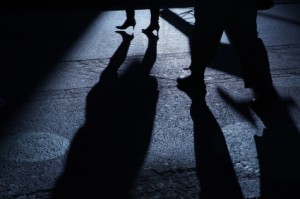
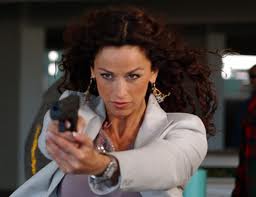
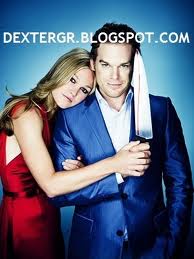
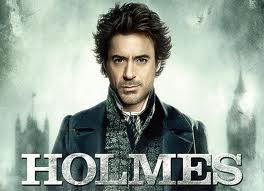
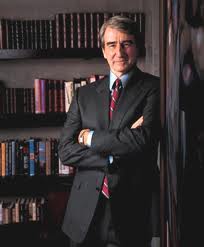
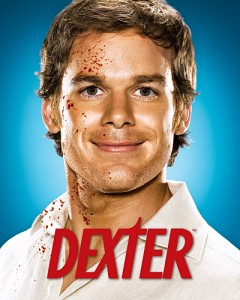
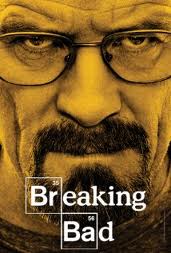
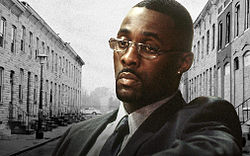
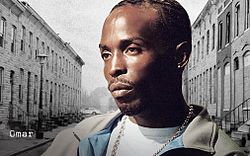

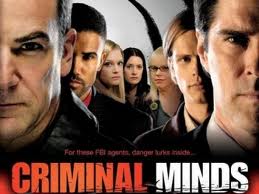






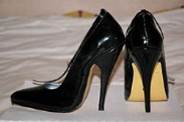
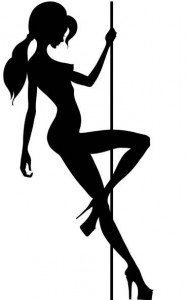
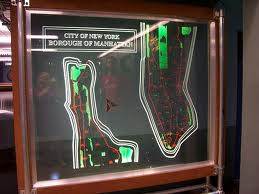

 James Pollock says
James Pollock says
18 June, 2012 at 10:32 pmThere’s a reason most dramas on TV are built around police stations, courthouses, hospitals, and schools. These settings allow a wide variety of stories involving a wide variety of characters. If you didn’t have that, a show would grow stale over the course of a season, as every original character was wrung dry of stories.
But TV cops can react to criminals, victims, and witnesses who come and go. TV doctors can react to patients who come and go. TV lawyers can react to clients who come and go. This gives the writers the opportunity to inject new stories into the show.
Most TV shows follow a fairly predictible path. They use up all the good stories about their characters in a couple of seasons, watch key actors begin to depart, and then stagger on, a pale shadow of their former selves. VERY few shows succeed in injecting new characters because audiences want to follow the same characters they know and love. E.R. was fairly successful in introducting new characters, such that the cast in season one only overlapped the cast in season fifteen in Noah Wyle. Law & Order replaced the entire cast a couple of times over a 20 year run. Gray’s Anatomy has turned over a significant portion of the cast, but is clearly losing steam. I’m having trouble thinking of any others. Cheers, maybe… Coach was a bit of a minor character, but the show continued strong after replacing Shelley Long.
Now… I like to think that the justice angle is part of why we like cop and lawyer shows. Compare the difference between almost any TV cop show, where the murder is solved in 43 minutes, with the VERY short-lived “The Whole Truth”, in which sometimes the guilty went free (The gimmick was that we, the audience, didn’t know for sure if the defendant was guilty or not until the final-minute reveal.)
 Carl N. Brown says
Carl N. Brown says
19 June, 2012 at 10:23 amSlipper? I use a sponge rubber brick.
Actually the “facing fear” angle also explains the popularity of supernatural horror. Facing the big horrors of Gran Guignol made the little horror of daily life bearable.
 Alenna says
Alenna says
19 June, 2012 at 10:09 pmCrime dramas have certainly changed over the years. I grew up on Gunsmoke, Dragnet and Perry Mason in the 1960s. The good guys always got their man (or woman), without any real blood or violence shown on the screen. Then in my young groovy hippie days I remember The Mod Squad was one of my favorite shows. It was where it was at. In the 1980s I remember watching Hill Street Blues and Cagney & Lacey – both considered “groundbreaking” for their time. In the 1990s I didn’t watch much TV (too busy in the Army), but I do remember the British series “Prime Suspect” was very good. One day I rented the first few episodes of The Wire and got sucked into watching that whole thing. I don’t even remember what started me on Law & Order SVU. I think there was an episode in the first year about women from Serbia getting revenge for war crimes ( I was stationed in Kosovo), and I got interested in the characters.
You’re right about some of the wrong ideas people get from crime shows. SVU has been particularly bad in recent years about victim-blaming (it seems to me); particularly the female victims, who always seem to contribute to their own victimization by being involved in some criminal or sexually promiscuous behavior, or associating with “bad” people, or using drugs and alcohol, or just being a cruel or dumb teenager. I can’t remember the last time they had and episode where the victim was just an ordinary nice girl.
 Michelle Cunin says
Michelle Cunin says
1 July, 2012 at 8:55 amI think depending on the story, it can make the police look like they don’t care or are too involved in someone’s business. As well as making it sound like the attorneys are stressed and overworked with each case to the point where you’re not sure if your case would be looked at with the right mindframe. “She’s already painting herself too thin. What about my case?”
 Freespeech says
Freespeech says
10 November, 2017 at 10:52 amI definitely hate them. They are repeating the same formulas on an on. It is like to contemplate your wall’s paper. It is absolutely nuts and insane: crime, sex and violence…Characters may change, but it is the same thing.
Even walking with a camera in the middle of the street could be funnier since you won’t know what will happen. The first time I saw “power rangers” I was amazed until I watched 3 episodes. At the end the monster dies- at the end of the episode the bad guy is capture, the disease is cured…It is childish and lame.
Every time a tv show with sexy professionals appears on the tv I change the tv channel.Life is too short for that shit.I have already seen it…
 ManSciFi says
ManSciFi says
3 July, 2018 at 1:59 amI hate them. Give me Scifi any day. its why I dont watch TV anymore. Thanks people your taste have made it so there is no room for mine!
 David Robb says
David Robb says
4 May, 2021 at 11:20 amMy biggest problem with crime drams these days is how personal they’ll make the cases, often havibg one of the main characters revealing they have this secret criminal past and ties to the mob boss downtown. The worst offenders are the ones that take a fairly localized detective show and make it about stopping a nuclear bomb that the main character’s ex KGB lover is threatening the city with out of petty revenge.
These stories always take me out of the show. Surely you can make things personal without jumping the shark.
 quatisha brown says
quatisha brown says
17 January, 2025 at 2:04 amI just want the whole world to know about this spell caster I met two weeks ago,I cannot say everything he has done for me and my family I was going through online when I meant this wonderful man’s testimony online how he won a lottery through the help of dr Ose I decided to just give it a try and my life is back to me now after i lost my job due to covid he gave me a winning numbers to play lottery and i won 5000usd for my first play since then i have been working with him and he has been giving me numbers to play my lottery i can not write everything he has done for me if you need a lottery spell today contact him on oseremenspelltemple@gmail.com www.facebook.com/Dr-odion-spell-temple-110513923938220
whatsapp +2348136482342
 Megan Taylor says
Megan Taylor says
11 January, 2026 at 1:12 pmI acquired my first home at the beginning of the year. To some, lottery players appear ridiculous, while we view it as a chance for an improved future. I’m known as Megan Taylor and I have played the lottery for ten years, yet I haven’t won anything substantial. In my pursuit of understanding how to win better, I was advised to consult Lord Meduza, the priest who provided me with the precise 6 numbers that helped me secure the Mega Millions jackpot of $277 million after using his spell powers and following his guidance. Lord Meduza services is top notch, and I believe your dreams aren’t finished unless you decide they are. Contact Lord Meduza the priest, and he will assist you in realizing your aspirations.
Email: lordmeduzatemple@hotmail.com
WhatsApp +1 (807) 798-3042..
Website: lordmeduzatemple.com